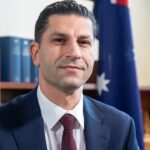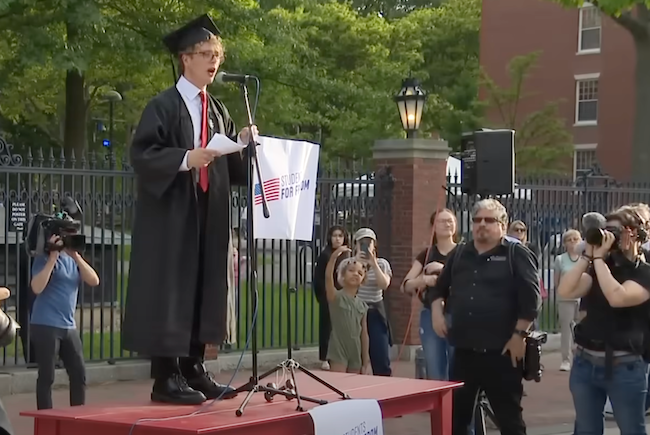Universities Under Siege from Political Pressure and Reputational Fear
“Political pressure, protest crackdowns and reputation management are threatening to steer universities away from their pursuit of truth and fairness,” writes Kim Sawyer.
New Threats to Academic Independence
These are unprecedented times for universities. The pressures they face extend beyond academic performance or institutional rankings. In today’s world, external political forces are seeping into higher education, challenging its core mission—the pursuit of truth, knowledge, and justice.
The Trump Effect on Campus Autonomy
Former U.S. President Donald Trump has become a symbol of how political influence disrupts academic autonomy. Universities, traditionally bastions of free thought, are being reshaped by agendas beyond their walls. The phrase “the barbarians are at the gates” is no longer just metaphorical.
The Corporate Transformation of Education
Back in 2007, I co-authored a paper expressing concern about the decline of academic independence. We described the university’s transformation into a corporate entity—focused more on enrollments, financial metrics, and political favor than on educational integrity.
Reputation Replacing Truth in Policy Decisions
In today’s environment, reputation reigns supreme. What was once a noble pursuit of knowledge now revolves around public image, donor appeasement, and policy alignment. The Gaza conflict exemplifies this shift. Anti-Israel protests on campuses are quickly labeled antisemitic, even when they stem from humanitarian concern.
Distorting Antisemitism to Silence Dissent
The misuse of the term antisemitism is deeply troubling. Criticism of a state’s actions should not be confused with hatred for a people. Stigmatizing voices of dissent mirrors the very prejudice antisemitism seeks to combat. Prejudice—no matter its direction—is a moral failure.
Theodor Herzl’s Vision Versus Modern Zionism
Zionism’s founder, Theodor Herzl, envisioned a homeland built on inclusion and tolerance, not exclusion. He once said:
“It would be immoral if we were to exclude anyone, whatever his origin, his descent, or his religion… ‘Man, you are my brother.’”
When Founding Ideals Are Distorted
Would Herzl recognize today’s reality? His vision is being distorted by those who justify oppression under his name. Modern Zionism’s misuse in political discourse has weaponized university discourse—forcing leaders to choose between principle and preservation.
Collapse of Leadership Under Political Scrutiny
In December 2023, university presidents from Harvard, MIT, and the University of Pennsylvania were grilled by Congress over antisemitism. Within a month, two resigned. Their mistake? Not being aggressive enough in managing the “optics.”
Columbia’s Fallout Reflects Broader Crisis
Columbia University’s leadership followed. One president resigned after agreeing to Trump-era policy changes; another over anti-Israel protest handling. These decisions reflect how benefactor influence and media narratives now dictate university governance.
The Broader Assault on Progressive Education
The issue extends beyond antisemitism. The Trump administration’s crackdown on DEI (diversity, equity, inclusion) initiatives shows a broader effort to silence progressive values in education. Leaders seen as sympathetic to these causes are now vulnerable.
Florida’s Rejection of Pro-DEI Leadership
Dr. Santa Ono’s case illustrates this well. Approved unanimously for a Florida university presidency, he was rejected by the Board of Governors—seen as too pro-DEI and too lenient on pro-Palestinian demonstrators. Even after publicly disavowing diversity programs, he could not overcome the political headwinds.
Australia Mirrors the Pressure Trend
Australia isn’t immune. While no vice chancellor has faced a U.S.-style congressional inquiry, reputation risk is a rising concern. At the University of Melbourne, four pro-Palestinian student activists were punished—two expelled, two suspended. Their crime? Occupying an office to protest partnerships with Israeli institutions.
Punishing Protest More Than Misconduct
The disciplinary decisions raise concerns. As someone who has served on such committees, I’ve seen cheating, bribery, and plagiarism punished more lightly. Yet activism, rooted in moral protest, results in harsh outcomes. The inconsistency is troubling.
Universities Must Uphold Fairness, Not Optics
Universities claim to value fairness. But expelling students for political protest contradicts their mission. Punishment should reflect the severity of the infraction—not the optics it generates.
Global Momentum for Academic Divestment
This isn’t just a student movement. Influential voices, including EU Parliament members, are pushing for divestment from Israeli research collaborations. Even UNESCO scholars suggest that, if cutting academic ties could ease suffering, it’s a move worth considering.
Academic Integrity Demands Courage
Universities are at a crossroads. They must choose: defend academic freedom, or cave to political pressure. Their decisions will shape the integrity of education for generations to come.
Truth Over Politics—The Academic Mission Must Endure
Truth demands consistency, courage, and compassion. Universities must reclaim their role as beacons of fairness and critical inquiry—even when the path is politically unpopular.







